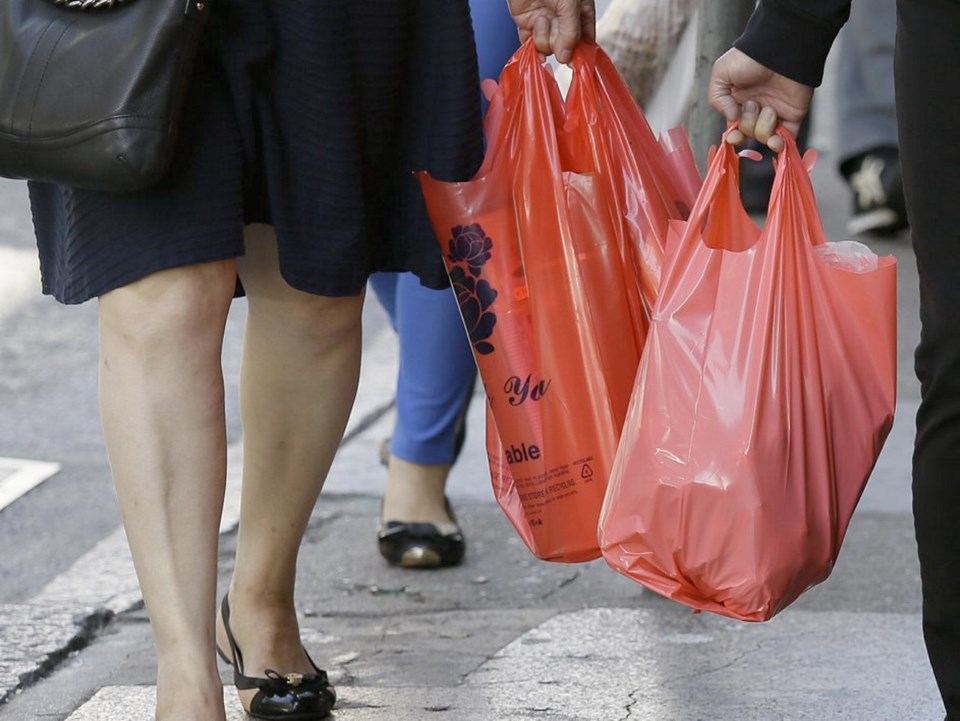Victoria Mayor Lisa Helps urged residents and businesses not to turn back the clock after a B.C. Court of Appeal ruling Thursday struck down the city’s ban on single-use plastic bags.
“We don’t need rules to have good behaviour, so my hope is the community will continue [on] the path that we’ve worked and walked in the past year since the bylaw came into effect,” Helps said.
The appeals court found that the city bylaw’s primary purpose was to protect the natural environment rather than to regulate business, and as such, the city should have sought provincial approval for the bylaw — something it did not do.
In fact, the appeal court noted that in March 2017, a Ministry of Environment representative wrote prior to the bylaw’s passage to advise the city that while it could enact the ban, the bylaw would be subject to ministry approval.
The city did not seek approval because it considered the bylaw a business-regulation bylaw, Helps said.
“We have the ability to regulate businesses to reflect the values of our community and the costs of doing business,” she said, adding that waste management is a very costly part of municipal business.
“It was very important to us that this be a business regulation bylaw. If we had thought it was entirely an environmental issue, we would have chosen to go to the Ministry of the Environment.”
When the Canadian Plastic Bag Association, an organization that represents manufacturers and distributors of plastic shopping bags, initially challenged the bylaw, B.C. Supreme Court Justice Nathan Smith sided with the city.
“I find no evidence of bad faith in this case,” Smith said in his decision. “Although some members of council may have been motivated by broad environment concerns, council’s attention was properly drawn to ways in which discarded plastic bags impact municipal facilities and services.”
The Appeals Court, however, sided with the Plastic Bag Association. It noted that while businesses are affected by the bylaw, that effect is incidental, and it’s consumers who are the most directly affected.
“The city did not set out to prohibit some types of checkout bags and encourage other types in order to interfere with or somehow improve business transactions,” said Justice Mary Newbury’s decision for the court.
“Rather, it set out to slow down and ultimately end the harm caused by plastics in waterways both local and global.”
Success of the bylaw, Newbury said, will be measured by whether the amount of plastic in waterways locally and globally begins to decrease — not by any commercial yardstick.
“Certainly an objective observer would, in my view, regard the bylaw as an environmental measure rather than a ‘business’ or commercial one,” she said.
Downtown Victoria Business Association CEO Jeff Bray said he doubts there will be any rush to return to using plastic bags. “I wouldn’t think that this reversal based on the requirement of provincial approval is going to sort of create a mad dash in the other direction,” Bray said, noting that a retailer wanting to do that would have to go through the process of ordering bags and getting them printed.
The federal government has announced a national ban on single-use plastic bags, but Helps doesn’t expect the city will sit back and wait for it to come into effect.
“The federal ban is not proposed until 2021 and it’s not clear exactly what items would be captured in that ban,” she said.
The city’s legal team is looking at the decision and council will have to consider its options, Helps said.
She said Victoria has already been in contact with communities such as Esquimalt, Sooke, Saanich, Ucuelet and Tofino that have either adopted or are in the process of adopting the same bylaw and could end up caucusing with them on a course of action.
“This is an important issue about the power of cities to regulate businesses in line with the values of community and in line with sustainable business practises in the 21st century,” she said.
A representative of the plastic bag association could not be reached for comment.



